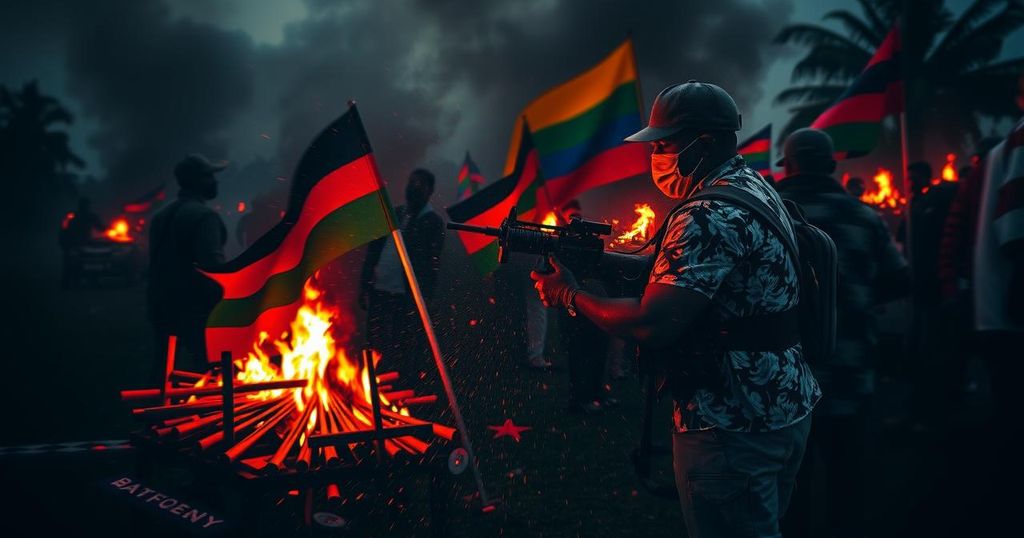Post-election unrest in Mozambique has led to significant violence and fatalities, raising alarms in Southern Africa about electoral integrity and regional stability. The ruling Frelimo party’s hold on power, despite opposition protests and claims of electoral fraud, has detrimental effects on trade and security within the region.
The post-election violence in Mozambique following the Oct. 9 elections, which saw the ruling Frelimo party extend its tenure, has raised significant concerns in Southern Africa. Protests erupted as opposition figures, particularly independent candidate Venancio Mondlane, contested the election results, leading to approximately 30 deaths and the closure of borders, notably with South Africa. This unrest not only threatens political stability within Mozambique but also poses risks to regional trade and security, given the country’s strategic position in the Southern African Development Community (SADC). With neighboring countries like South Africa and Botswana experiencing relatively smooth transitions of power, Mozambique’s situation highlights the ongoing challenges of electoral integrity in the region. The European Union noted irregularities in the recent elections, echoing similar concerns from previous electoral cycles. Such instability in Mozambique, which is still healing from a protracted civil war and facing ongoing violence in its northern regions, may exacerbate issues of illegal migration and economic disruption among its neighbors. The importance of Mozambique’s natural resources, including significant mineral deposits and natural gas, further underscores the need for a stable political environment conducive to economic growth and cooperation within Southern Africa.
The recent elections in Mozambique have sparked widespread protests and accusations of electoral fraud, primarily due to the ruling Frelimo party’s assertion of control amidst claims of irregularities by opponents and election observers. This unrest follows Mozambique’s turbulent history marked by civil war and ongoing violence linked to radical groups. Consequently, the implications of this post-election violence extend beyond Mozambique, affecting the broader Southern African region due to interlinked economies and shared sociopolitical challenges.
In conclusion, the post-election violence in Mozambique represents a pressing concern for Southern Africa, threatening both political stability and regional economic security. As neighboring countries closely monitor the situation, the outcomes of these protests could reshape not only Mozambique’s political landscape but also its relationships with surrounding nations. The necessity for credible electoral processes and political stability is paramount in ensuring peace and economic sustainability in the region.
Original Source: apnews.com






